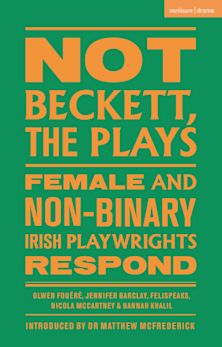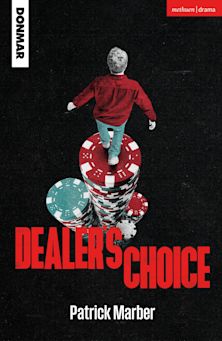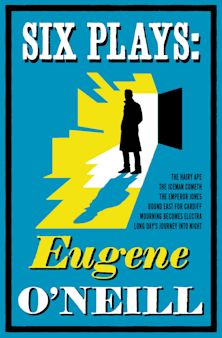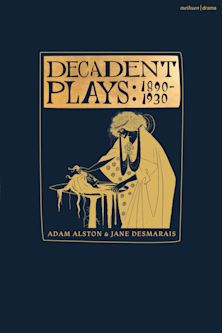- Home
- ACADEMIC
- Drama & Performance Studies
- Plays: 20th Century
- The American Clock
The American Clock
A Vaudeville
The American Clock
A Vaudeville
Inspection copy added to basket
Choose your preferred format. If you would prefer an ebook and it is not displayed below, please visit our inspection copies page.
Please note ebook inspection copies are fulfilled by VitalSource™.
You must sign in to add this item to your wishlist. Please sign in or create an account
Description
'It is Mr. Miller's notion, potentially a great one, that the Baums' story can help tell the story of America itself during that traumatic era.'
NEW YORK TIMES
When the stock market crashes, the once-financially comfortable Baum family lose everything and are forced to leave their lofty home in Manhattan to live with relatives in Brooklyn: how can their pride, purpose and artistic endeavours survive such a sudden and shocking reversal of fortune?
A sweeping, hard-hitting look at the Great Depression of the 1930s, The American Clock is a vaudevillian celebration of American resilience and optimism in the face of national crisis, and was performed on Broadway in 1980.
This Methuen Drama Student Edition is edited by Jane K. Dominik, with commentary and notes that explore the play's production history (including excerpts from interviews with designers of the 1980 Broadway production) as well as the dramatic, thematic and academic debates that surround it.
Table of Contents
COMMENTARY
Historical, social and cultural contexts
Genre and themes
Play as performance
Production history
Academic debate
Behind the scenes
Further study
PLAY TEXT
NOTES
Product details

| Published | 20 Oct 2022 |
|---|---|
| Format | Ebook (PDF) |
| Edition | 1st |
| Extent | 128 |
| ISBN | 9781350226999 |
| Imprint | Methuen Drama |
| Series | Student Editions |
| Publisher | Bloomsbury Publishing |
About the contributors
Reviews
-
This panoramic 1980 play about America during the Great Depression [is] described as “a vaudeville” [and] it shows how the nation's built-in optimism came up against economic reality ... The play, which combines the texture of despair with a residual hope epitomised in the line “a country can't just die”, shows just how much the 30s shaped Miller's artistic imagination. ... It shows [Miller's] enduring capacity to capture the state of a troubled nation.
Michael Billington, Guardian
-
The piece serves as a warning from history ... but there's nothing dusty or dutifully clock-watching about it ... [Miller] billed the show as a “vaudeville”, likened it to a mural – and that gives him a means of pushing out across the nation, giving voice to a chorus of bewilderment, as the banks fail, the bailiffs call, the crops rot, and the air hangs heavy with resentment and revolutionary fervour. Yet swimming amid the tide of acrimony, there's stoical humour, resilient American optimism and even young romantic love ... [The play feels] eerily up to-the-moment and [serves] as an invaluable reminder of how an economic shock can change a country forever.
Dominic Cavendish, Daily Telegraph
-
No 20th-century playwright was more gifted at depicting the downsides of the American dream than Arthur Miller
Dominic Maxwell, The Times
-
Frequently magnificent and ... also ... nauseatingly prescient. [The play's] kaleidoscopic vision of an advanced society sleepwalking into an essentially self-inflicted disaster is certainly painfully relevant to Britain's current interests. ...It's a powerful, poignant and frequently enlightening journey ... This strange, flawed forgotten play is the most relevant piece of political theatre in town.
Andrzej Lukowski, Time Out




































